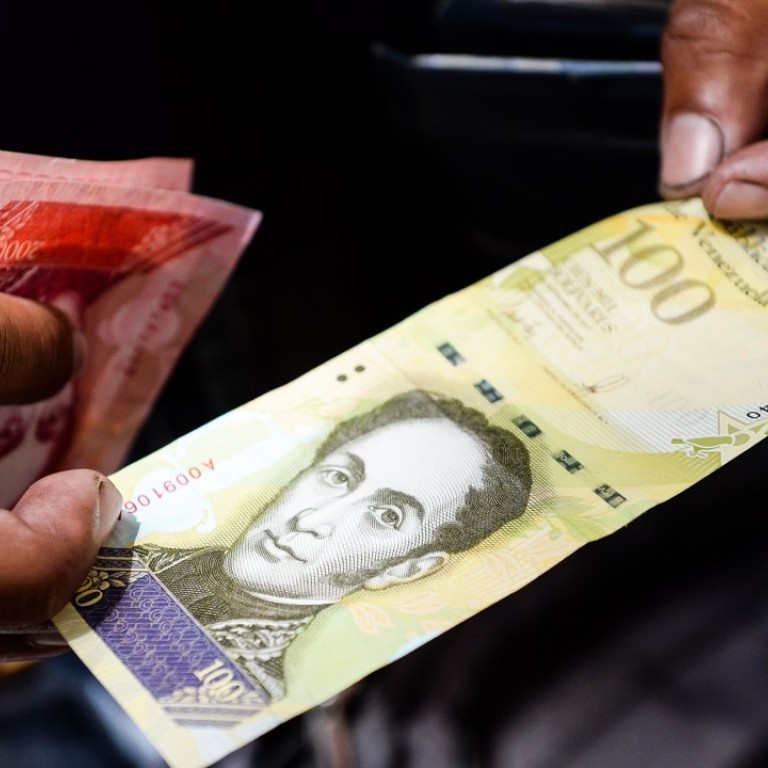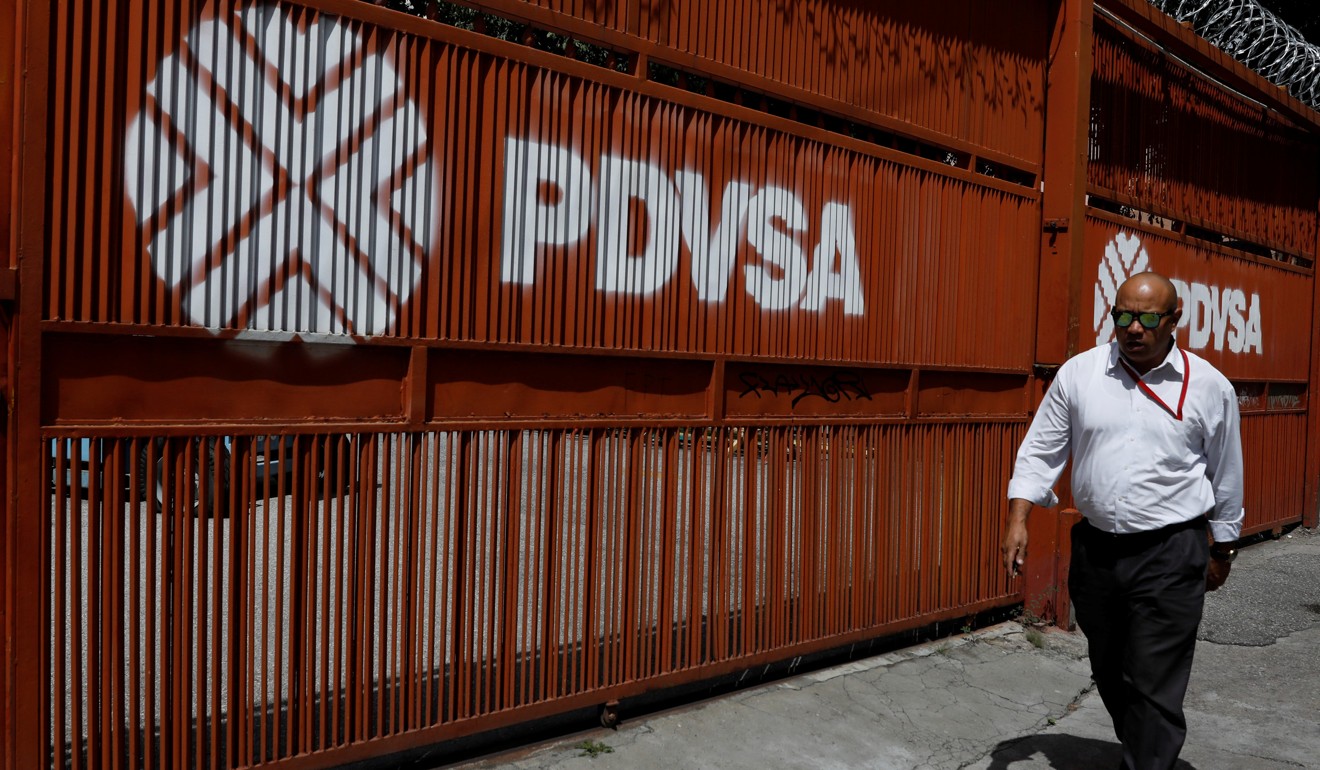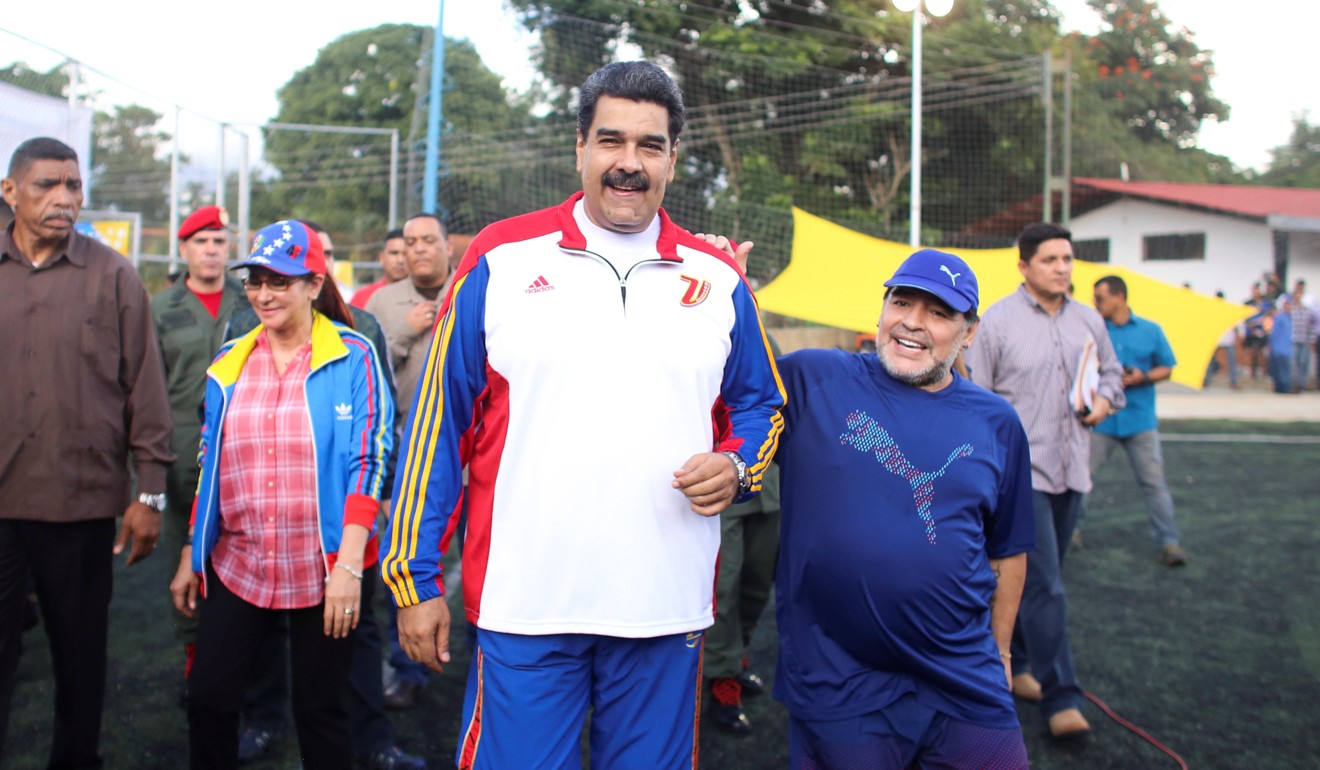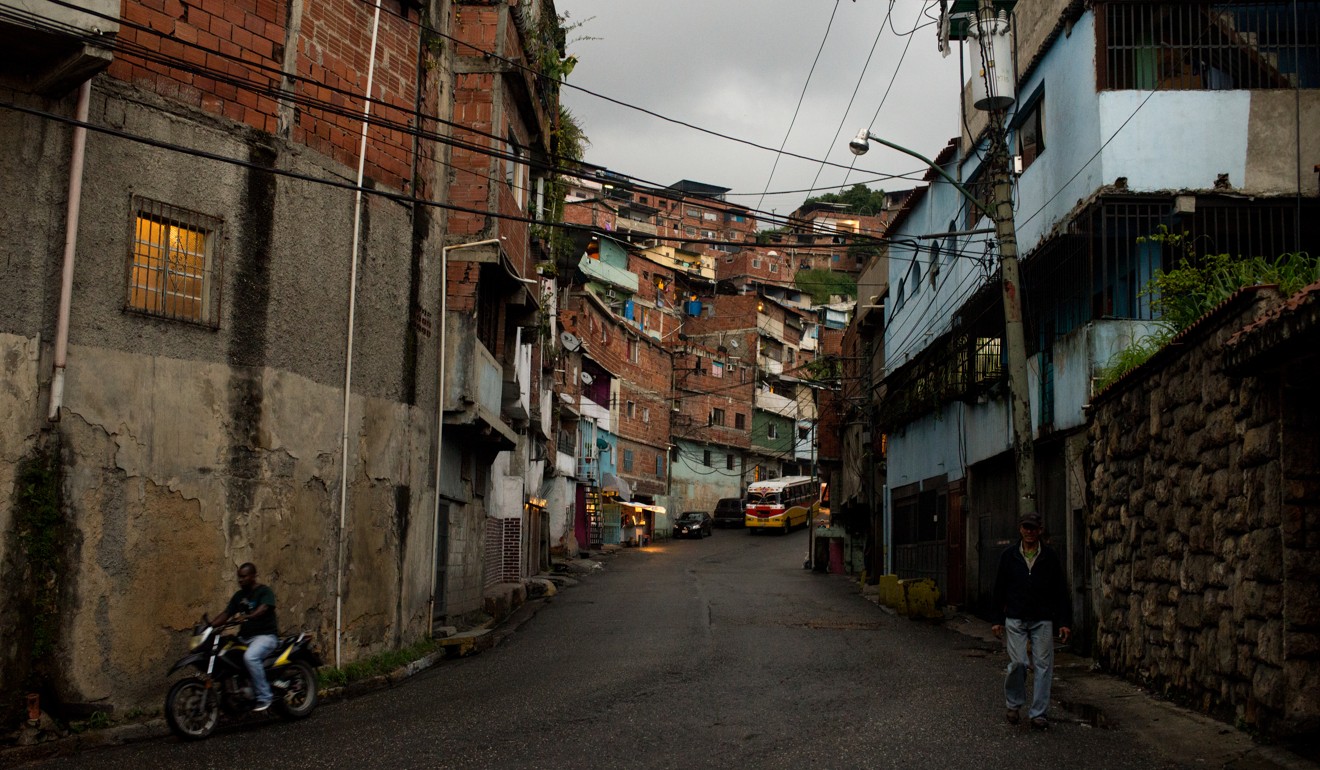
Creditors delay verdict on whether Venezuela has defaulted on its debts
Decision day on a looming Venezuelan default was pushed back on Friday after a committee of creditors postponed a ruling on whether state oil company PDVSA had officially defaulted on its debt repayments.
The creditors, represented by 15 financial firms at a meeting in New York, agreed to meet again on Monday – the same day President Nicolas Maduro has summoned creditors to Caracas to discuss rescheduling Venezuela’s massive US$150 billion debt.
For the moment the decision of the so-called Determinations Committee, which met in New York “to discuss whether a Failure to Pay Credit Event had occurred” on a due PDVSA bond, throws Maduro something of a lifeline.
PDVSA is a crucial part of the infrastructure of the South American state, which sits on the world’s largest oil reserves.

A default by the oil company responsible for 95 per cent of the nation’s exports would trigger the seizure of assets like crude-laden oil tankers and its US subsidiary Citgo’s refining activities and service stations.
Analysts believe a default is inevitable, but the oil company’s easily accessible foreign assets make it more likely that Maduro will continue to repay PDVSA’s debt, at the possible expense even of sovereign debt, which has few assets abroad.
The Maduro government had said it would make a US$1.2 billion payment on a PDVSA bond on November 2, but the funds never reached creditors. Friday’s meeting resulted, as a group of investors who hold financial instruments that act as default insurance asked for a committee ruling of default to allow them to cash in.
About 70 per cent of Venezuelan bondholders are North American, according to government figures. The government also has a deadline Friday for another US$81 million on another PDVSA bond.
At least US$1.47 billion interest on various bonds is supposed to follow by the end of the year, and then about US$8 billion in 2018.
However, the country has less than US$10 billion in hard currency reserves.
The owed funds comprise at least US$60 billion in tradeable sovereign paper and an estimated US$90 billion more held by China, Russia and creditors to state oil company PDVSA.
One financial institution acting for bondholders, Wilmington Trust, declared on Friday that missed payments of US$650 million from Venezuela’s electricity company Corpoelec, due this week after a grace period expired, officially constituted a default event.

Major credit rating agencies Fitch, Moody’s and Standard and Poor’s have all downgraded Venezuela’s standing in recent days.
“One way or another, the government and PDVSA will default. We are in the end-game and it’s now become a matter of days, not weeks, until default is confirmed,” Edward Glossop of Capital Economics said in a note.
A default would immediately cut Venezuela off from international financial markets, removing its capacity to borrow. Greatly complicating its situation, Washington has banned it from any new debt transactions in the US market.
On Thursday Washington upped the economic pressure by sanctioning 10 officials it said engaged in state election irregularities last month.
The sanctions named government ministers and members of Venezuela’s National Electoral Council and the new, all powerful Constituent Assembly which has replaced congress.
“As the Venezuelan government continues to disregard the will of its people, our message remains clear: the United States will not stand aside while the Maduro regime continues to destroy democratic order and prosperity in Venezuela,” US Treasury Secretary Steven Mnuchin said in a statement.
The sanctions effectively freeze those named out of much of the global banking system, requiring most international banks not to process transactions on their behalf, and block their access to any assets under US jurisdiction.
Sanctions imposed by President Donald Trump’s administration in August banned US trade in any new bonds issued by the Venezuelan government or PDVSA – a needed step in any restructuring of the oil-rich country’s debt.

The only bright spot is Russia saying it had agreed to ease debt repayments for more than US$3 billion that Venezuela owes it, with a formal accord to be signed within a week.
However, that amount is just a fraction of Venezuela’s total debt mountain.
For a country with the world’s largest oil reserves – which the country estimates at nearly 300 billion barrels, worth more than US$15 trillion – such debt should be bearable.
But decades of mismanagement, destruction of Venezuela’s private sector, lack of infrastructure investment, rigid currency controls and the fact that oil exports are now essentially debt repayments rather than income all leave Venezuela at the edge of the precipice.

.png?itok=arIb17P0)